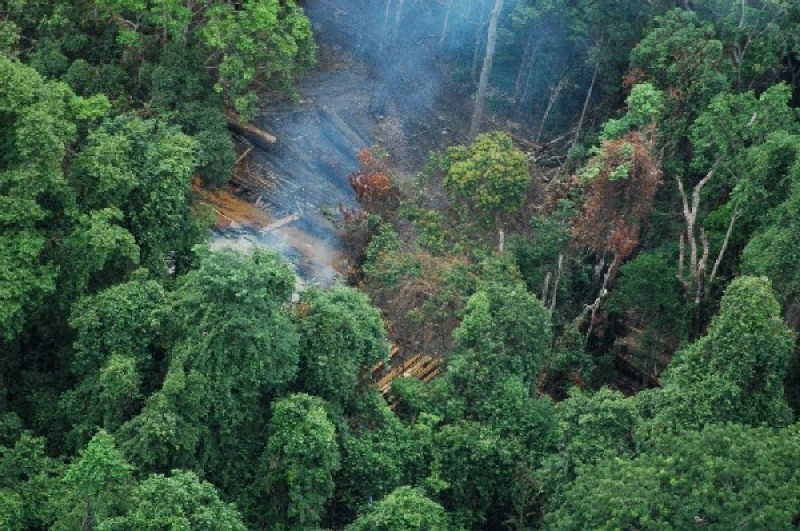The country’s forests contain some of the world’s rarest and most beautiful fauna. According to NGO, Open Development Cambodia, the country is losing 770 square miles of forest per year, rendering several species of diverse wildlife endangered.
The army, which has outposts in the mountains and forests outside of Phnom Penh has been implicated in illegal logging, and has been linked to the murder of activists. In early 2018, three anti-logging activists were killed, and six members of the military were arrested. Deaths of forest rangers and other environmental activists in the past years have gone uninvestigated.
Among the rare species of trees, is rosewood. The country has had a ban on felling the tree since 2002, yet it’s high demand in China and Europe –mostly for furniture-- makes it a lucrative supplemental income for already low-paid forest rangers, farmers, and the army.
The corruption extends past the individuals participating in the trade, and reaches the few companies who have licenses to cut wood legally. These companies are allowed to clear areas for agriculture –not timber-- but they often expand past the designated spot and harvest the trees for sale.
The devastating part, is that all of this takes place in Cambodia’s nature reserves.
The trade extends from Cambodia into Vietnam; border police, park rangers, and locals all participate and get a cut in order to turn a blind eye when trucks filled with rosewood pass. Many have no other choice but to participate in order to escape poverty.
The illegally harvested wood makes its way into Europe fairly easily. Although wood imports into Europe must be proven to have been acquired legally, the poachers and traders Deutsche Welle spoke with say it’s easier to slip past than one would think.
The European Union is currently negotiating with Vietnam to deregulate the movement of imported goods –a move some MEPs say will “legitimize and facilitate” the illegal timber trade and make it easier to channel its goods into Europe.
The OCCRP investigates environmental crimes as part of its mandate. It’s latest investigation looked at how the brutal rhino tusk trade in South Africa is obliterating already endangered white rhinos.






